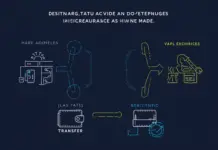Understanding DeFi and Its Vulnerabilities
Are you aware that the decentralized finance (DeFi) sector has grown exponentially, with over 5 million users globally? Yet, a significant concern remains: the risk of smart contract bugs. As the landscape of digital currency trading evolves, so do the potential pitfalls that can arise from programming errors in DeFi protocols.
What Are Smart Contract Bugs?
Smart contracts are self-executing contracts with the terms of the agreement directly written into code. However, just like in any software, bugs can arise:
- Logic Flaws: These can occur in the contract logic, leading to unintended consequences.
- Reentrancy Attacks: A common vulnerability that occurs when an external contract calls back into the original contract.
- Integer Overflows: When mathematical operations exceed the storage capacity, they can reset values unexpectedly.
Understanding these bugs is vital for anyone involved in DeFi protocol auditing.

The Impact of Smart Contract Bugs on Users
When smart contract bugs are exploited, they can have devastating effects, including:
- Financial Loss: Users can lose funds instantly if an exploit is successful.
- Loss of Trust: Bugs can erode user confidence in an entire platform, slowing down the adoption of blockchain technology.
For instance, in 2021 alone, hackers siphoned off approximately $1.3 billion due to vulnerabilities in smart contracts.
How to Mitigate Smart Contract Risks
While risks exist, strategies to minimize the impact of bugs can be employed:
- Thorough Audits: Regularly audit smart contracts through reputable firms. This can reduce potential risks by up to 90%.
- Insurance: Consider smart contract insurance to safeguard your investments against bugs.
- Bug Bounty Programs: Engage the developer community to help identify vulnerabilities proactively.
Employing these strategies can greatly enhance the security of your crypto assets.
Looking Ahead: The Future of DeFi Security
As DeFi continues to gain traction, developers are focusing on building more secure frameworks. By 2025, it is projected that over 25% of financial services will be powered by DeFi. Hence, understanding and navigating the risks of smart contract bugs is more vital than ever.
Conclusion
In conclusion, while DeFi smart contract bugs pose a significant risk, understanding the vulnerabilities and implementing proper security measures can help protect your assets. Explore our resources on securing your investments and make informed decisions today!
Act now to safeguard your crypto journey by utilizing these strategies responsibly.
For more insights into the evolving world of digital finance, visit hibt.com.
Meta Description: Understand the risks of DeFi smart contract bugs and learn how to mitigate them for secure digital currency trading.
Author: Dr. Jonathan Wright, a blockchain security expert, has published over 15 papers in the field and led audits for renowned DeFi projects.




